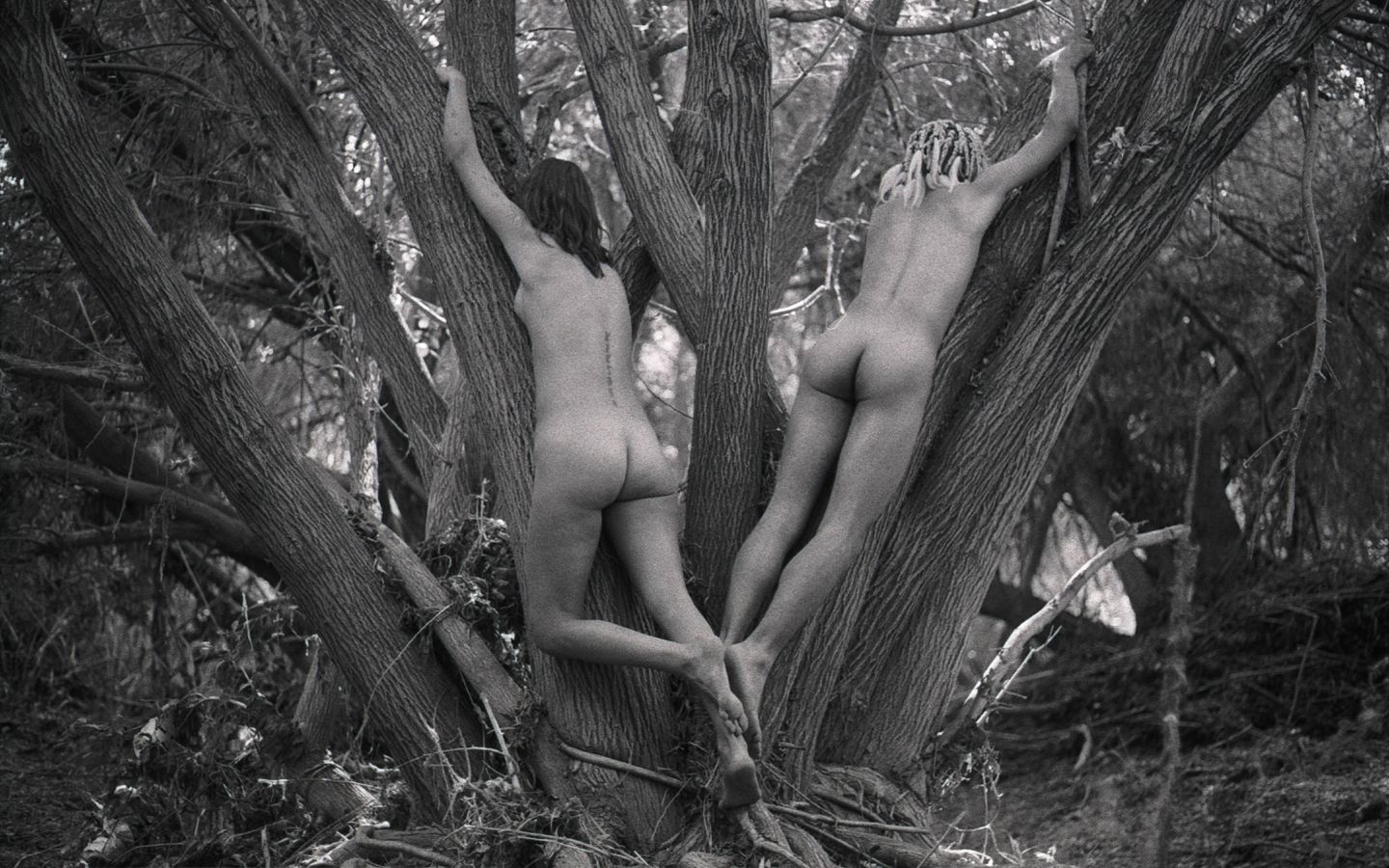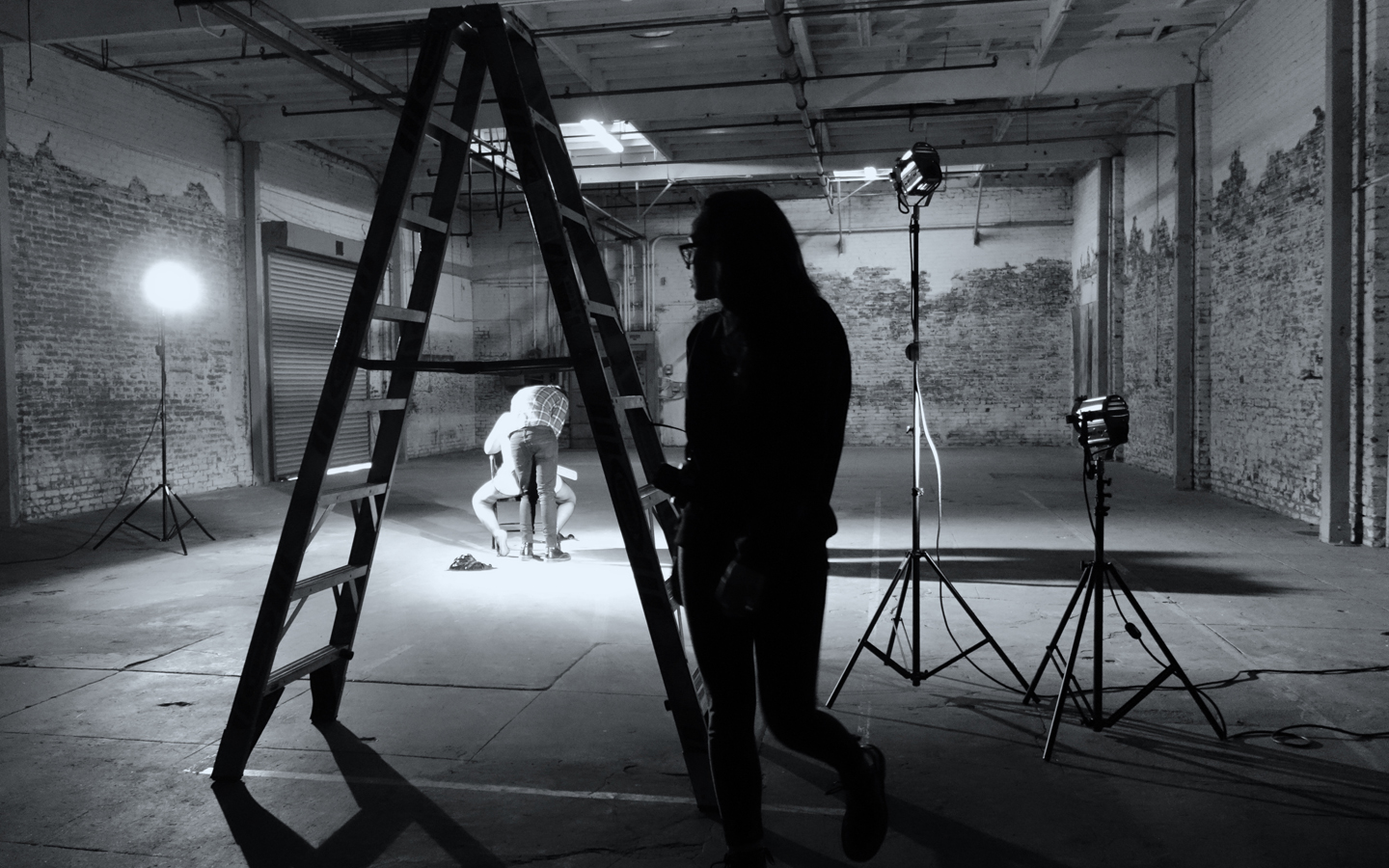
A Brief Inquiry into the Association of Sexuality and Creation in Spiritual Discourse
text VIRGINIA RAND
35mm film NIKO SONNBERGER
You are here because somebody used sexual creation to summon life. The power to create life, the sexuality in creativity, and the interlink of power and sex, are underlying themes in many spiritual practices. No matter what the semantic religious ethics dictate regarding sex, it is inseparable from principles of power and creation—be they positive or negative.
This power and creativity are the roots of sex magic principles. Undulating within all beings is a primordial drive to procreate. Sex interweaves countless areas of human behavior and social constructs. Oscar Wilde, a mind of revered creative power, was quoted:
“Everything in this world is about sex, except sex.
Sex is about power.”
Considering this in congruency with various spiritual principles around creation and power, we can see some of the universal principles regarding the power of sex magic. Rather than indulge the misinformed, kitschy gimmicks that sex magic has become associated with, the following is written with the intention of honoring the abstracted principles of spirituality and sexuality.
Sex magic is typically associated with witchcraft, a religion which has been demonized and misconstrued in the western world of Christian influence. Even supporters or admirers of witchcraft and sex magic fall for bastardizations of the original spiritual practice in witchcraft. It was dressed up with novelty tropes through stories and cinema. Indulgent sensationalism amassed. Shock value excused inaccurate representations in efforts to condemn and negate, or glorify for the purpose of box office sales and movie rentals. Bloodstains on the altar, orgiastic ritual, the sacrificial lamb, the horned goat, the priestess disrobing, the indulged perversion of Aleister Crowley, the satanic rite: such tropes are all fine and fun for what they’re worth, but this small and misrepresented spectrum of practice has distracted from more universal philosophies of sex magic.
Today, sex “magick” usually refers to the practice of using sexual acts and energy with intention and visualization for manifestations. There are thousands of videos explaining these tactics and techniques online and via online witch forums. Sexual ritual with a partner or with masturbation—often with the intense energy ‘magick’ of orgasm—is a specific practice of manifestation.
Here, I want to look at the more abstracted, universal principles of sex and magic.
‘Magic’ is a broad term that includes, but does not limit, the images often associated with mainstream western witchcraft. It speaks of interaction beyond our bodies:
MAG•IC /MAJIK/
(NOUN) 1. THE POWER OF INFLUENCING THE COURSE OF EVENTS THROUGH MYSTERIOUS OR SUPERNATURAL FORCES.
(VERB) 1. MOVE, CHANGE, OR CREATE BY OR AS IF BY MAGIC.
Combining this definition of magic with sexuality forms a broader realm of sex magic. The specific tricks and practices are all well and good, but the metaphysical properties of sex magic go far beyond crystal dildos, tarot cards, and love potions. They are all wonderful, sure, but abstracted conceptualizing of power and creativity to influence our worlds via sexuality expands the idea of a sex magic practitioner. Certain historical figures sucked up the attention for sex magic and redirected the principles to suit their needs, aesthetics, and lust for power.
Looking beyond the narrow tropes of what we think we know about sex magic, consider the interconnections between the metaphysical aspects of sexual power and the effects it has on humankind.
In its most clinical and rudimentary understanding, sex is the cradle to create life, aligning the DNA of new humans. Even the most stringent cynics may call forming human life a miracle. Our brains are built with the most primitive instinct to survive, which entails perpetuating life and avoiding death. Our rudimentary instincts to sleep and eat and fight or flee all support the desire to create new forms of our lives, be it our own, another day, further survival, or in creating our offspring. Much of our behavior is for the attention and attraction of our preferred sexual partners, and these behaviors persisted from the neanderthals on the plains, to the cobblestoned streets of Wilde’s century, and our own digital age. Sexual instinct and arousal inspires us: from the arts, to our ambitions, to traveling somewhere new, to building the houses which protect our partners and offspring, to write our most passionate songs and popular books, to laugh, to dance, to sing. Wilde struck a layer of truth in his sweeping claim that all our world is about sex, and sex is about power.
Narrowing specifically in on the interconnectivity of this power in sex magic, I want to look further into some of the history of how these forces of sexuality, good or bad, have formed areas of human existence. Sex and spirituality have a tumultuous relationship, and have been the nexus through which many great works of art were born.
Historically, stripping someone of their sexual autonomy has been a proven methodology of asserting power and control. Religions with conservative views of sex tend to have hierarchical societies and relationships. Women as the harbingers of life had restrictions placed on their sexuality, in particular as a mechanism of authoritarian rule by a masculine deity. Whitewashing sex out of Genesis stripped woman of her power to create human life. In the realm of spirituality and magic, intentional shifts in power effectively cast a spell on women; this has come to be known as ‘Eve’s curse.’ In the many translations and readings of Genesis, the forbidden fruit, the serpent, the unclothed woman, the unclothed man, the “knowledge,” and the fall from innocence have all become heavily imbibed with sexual symbolism—which of course led to being cast out from the garden. In retrospect, it all seems rather ritualistic.
The iconic battle between witchcraft and Christianity established the power dynamics which spawned from sex and magic. Women who were autonomous, independent, powerful, and able to self-suffice through creativity were cast as dangerous sorceresses.
Controlling the feminine power through stifling sexual creativity, magic and beauty, the church effectively controlled women—regardless of whether or not they identified as witches—for hundreds of years.
The effects of positive sexuality have seemingly supernatural effects on us. A single glance causes chills up the spine, a beckoning hand sends a rush of blood, a step closer together and everything illuminates. To be free and in control of one’s own sexual creativity gives us power in our lives.
Inversely, negative sex can act as a curse and a spiritual hole. The effects of rape and sexual abuse leave survivors with trauma, strange and uncontrollable side effects; which cause them to wake them in the middle of the night, hear and see things that aren’t there, burst into spontaneous tears, feel pains and aches that seemingly come from nowhere. They experience the inability to leave a house or a room, sudden panic and heart palpitations, the sensation of being on the ceiling watching your own body, or entering a space of being completely numb and detached from the world. Rectifying these has often, in personal experience, felt like an exorcism. Once fearless of the dark, I suddenly saw demons crawling in the shadows beneath my bed. Disembodied hands would seem to touch me out of thin air, and I was often on the verge of a sudden urge to scream. The power carried in words, the same principle as incantation, are what counters these traumatic incidents for many who become trapped in these circumstances.
As women of biblical times were bound by the dark powers of sex shame, self-sufficient creative women were deemed as witches who posed a threat to the establishment of church authority—and burned at the stake or hung as a result. Today, sexual violence moves through our streets and into our homes, places of work, and even classrooms—insidious transgressions of all our modern logic.
There is an evil inverse to sex magic, as there is to many forces in our seemingly balanced world. Conservative restriction of sex to procreation defies our natural instincts, deeming sex in the form of contact, communication, connection, or pleasure as dirty and devilish. Tormented, persecuted, loveless, and sexless people can go mad; as if carried into a darker realm, the human psyche feels left in bitter loneliness, even in a house or town surrounded by people. Frustrated sexual beings become feverish and volatile, as if beset by demons. Assuming that love is connected to sex, those with broken hearts seem to disappear before our very eyes. Sex panic is the destruction to sex magic creation.
Sacred sexuality empowers practitioners, while evil sexuality robs others of that power. As the God of the Old Testament was hailed as an all-powerful being transgressing natural order through creatio ex nihilo, women were the beings to truly create life out of nothing but ejaculate, her own energy, and time. Forcing conception as the only purpose of sexuality, all of these enlivening behaviors around sex that didn’t or couldn’t result in a human birth were banned and deemed sacrilege. Wilde’s homosexuality ostracized him from society, and yet it was his wit, charm, and sexuality which made him such a celebrated creative mind. Sex between men cannot result in conception, and it is the energy and, arguably, the magic in the mysterious course of these pure life forces which threatened the power and authority of the church. Those who had access to their own sexuality through masturbation, homoeroticism, and—in some extreme conservative forms of Christianity such as Puritanism—any sort of pleasure, were deemed dangerous and threatening to society. One must wonder why all the forms of sex which don’t have potential to yield conception is deemed as such a threat. With the interlink of sex and power, under the lens of magic, the energy of sexual pleasure becomes an unbridled force, viewed by the church as supernatural, which allows the experiencer(s) to tap into their own power and magic without institutional reliance. Autonomous, pleasured, and satisfied people do not desperately seek spiritual guidance so often as the desperate and frustrated.
In the cyclical nature of life, the ebbs and flows of sexual energy seem tied into everything in this world, as stated by Wilde. We were all created by sexuality in one form or another. The major exception being Jesus, of course, solidifying women as a vessel for supernatural power rather than a source of it, because independent women are not as convenient for Church rule. That Mary created Him through purity, and Eve was tainted and ruined, further draws the polarization of the self-realized and sexually active as evil—with virginity portrayed a valued commodity to prevent discovery of inner magic and power autonomous from another spiritual agent (The Church). As the condemnation of it may be just as passionate as the act of it, our tendencies to create and destroy seem to come from some instinct from beyond our biology. These supernatural effects of sex interlink the souls and stories of our world with a power unrivaled in its potency.
Wilde suggests sex goes beyond ritual and rite; that it transcends religious ideals of conception or chastity. If sex is underlying all of our behavior, if creativity is both inherent within sex and interlinked with power, and if sex is power, then an undulating vibration of sex magic power is available to be harnessed as we interact—night after night.




